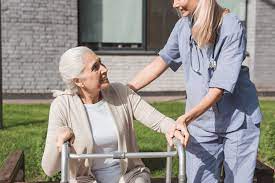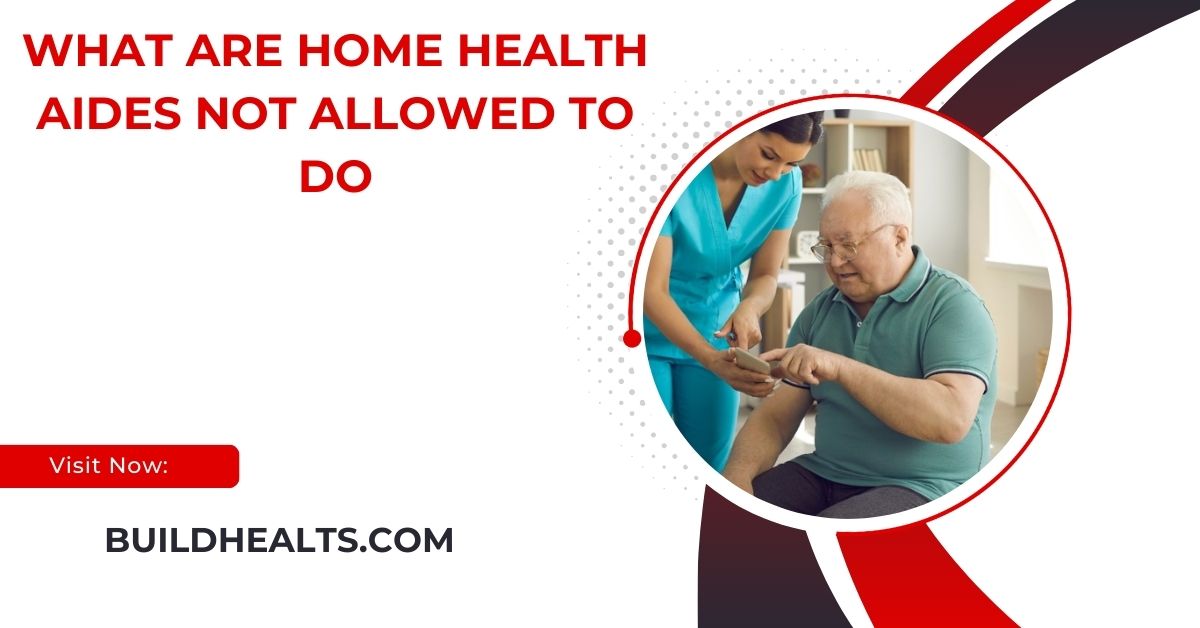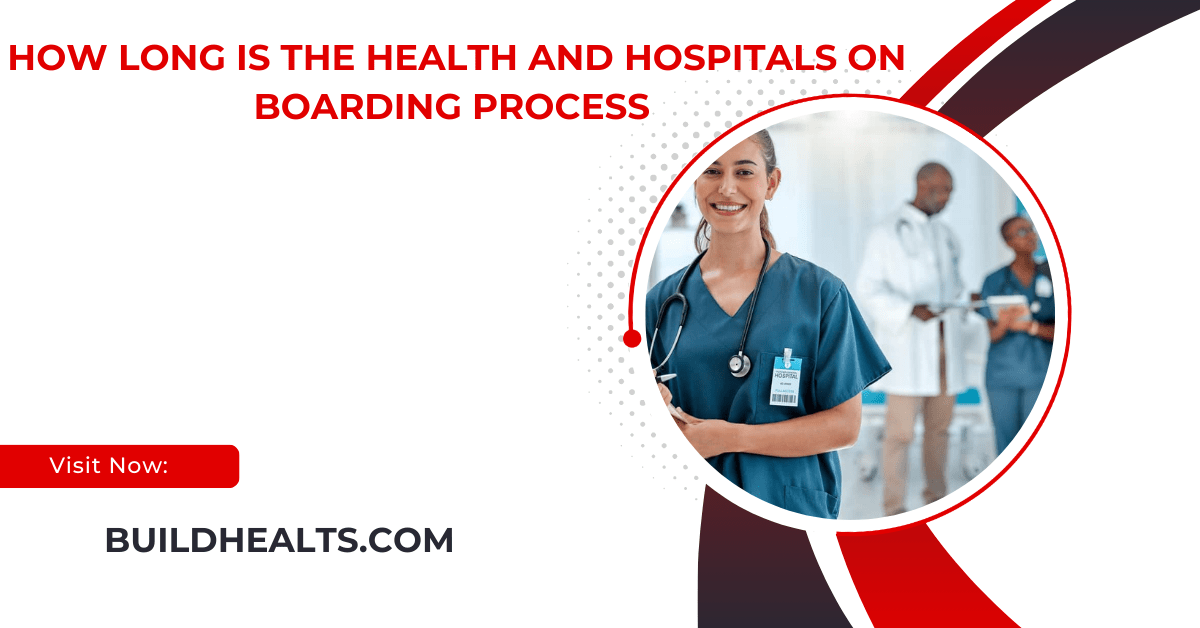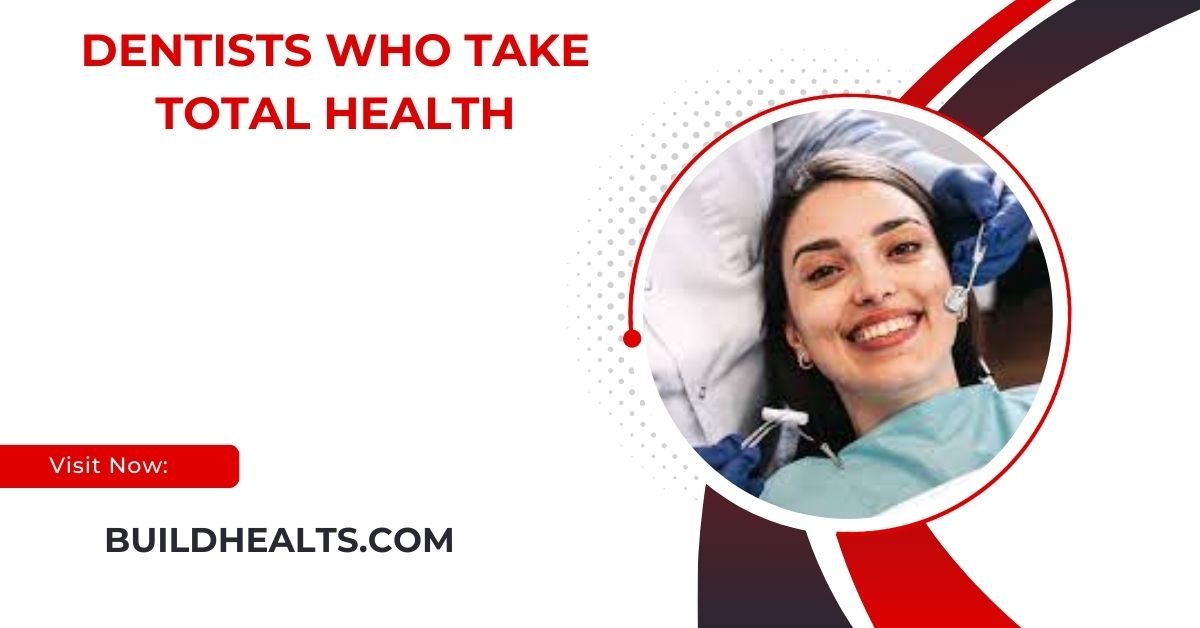Home health aides (HHAs) provide essential care but cannot administer medications, perform medical procedures, diagnose conditions, manage finances, or make major decisions.
This article will clarify what tasks are off-limits for home health aides to ensure clients receive proper care within legal and safety boundaries.
What is a Home Health Aide?

Home health aides are trained caregivers who offer personal support for individuals in need of assistance with daily tasks. This need may stem from age-related challenges, chronic illnesses, physical or mental disabilities, or recent medical procedures. HHAs provide companionship, help with mobility, and assist with daily living activities like bathing, dressing, and light housekeeping. They also monitor patients for any changes in behavior or physical health and report these observations to healthcare professionals.
The Importance of Understanding HHA Limitations:
It’s crucial for family members and clients to understand what home health aides can and cannot do. While HHAs bring comfort and necessary aid to clients, attempting to stretch their role into areas like medical or financial support can pose risks, including legal ramifications, health risks, and violations of professional care standards.
Tasks Home Health Aides Are Not Allowed to Perform:
Even though HHAs play a supportive role, there are certain limitations based on their training, skill level, and job description. The following sections outline tasks that HHAs are not authorized to handle.
Administer Medications:
Medication administration is a common necessity among individuals receiving home care. However, administering medication involves careful dosage measurement, timing, and an understanding of potential side effects, which are tasks outside an HHA’s job description. While HHAs can offer reminders or assist in organizing medications, they are generally prohibited from:
- Giving injections (e.g., insulin shots)
- Setting up IVs
- Adjusting medication dosages
- Applying or removing medical patches
- Handling certain prescriptions, especially controlled substances
In many cases, administering medication requires certification and knowledge that only licensed healthcare workers like nurses have. This distinction is vital, as medication errors can lead to severe health consequences, including overdose, adverse drug reactions, or worsening of a client’s condition.
Also read: What Style Of Marketing Goes Into Health Insurance – A Complete Guide!
Perform Medical Procedures:
Medical procedures often require specialized training and certification, which HHAs typically do not possess. Tasks that require intricate medical knowledge, such as:
- Inserting or removing catheters
- Administering oxygen therapy
- Performing tracheostomy care (care for an artificial breathing tube)
- Managing tube feedings for nutrition
These procedures are usually performed by skilled nurses or medical technicians. Attempting to carry out these tasks without the appropriate skills can be dangerous for the client, leading to potential health risks such as infections, respiratory distress, and improper wound care.
Make Medical Diagnoses:
Another significant limitation is diagnosing illnesses, conditions, or symptoms. HHAs are trained to observe and report but are not qualified to:
- Diagnose new symptoms or conditions
- Interpret medical results (such as lab tests)
- Suggest medical treatments or health solutions
This limitation is important because diagnosing conditions requires a deep understanding of human physiology, potential underlying health issues, and medical treatment plans. Only licensed physicians or nurse practitioners should handle diagnosis and treatment recommendations. HHAs should report observations to a client’s primary caregiver or medical professional, who can assess the situation appropriately.
Handle Complex Wound Care:

Wound care can range from simple first-aid applications to advanced medical dressing changes. Although HHAs may assist with basic hygiene or cleaning minor injuries, they should not attempt to manage:
- Dressing changes for deep or infected wounds
- Managing surgical sites
- Handling any wound with drainage or infection risks
- Providing care for pressure ulcers or bedsores without supervision
Proper wound care is essential for preventing infection, ensuring faster recovery, and reducing pain or discomfort. Wounds are often very delicate, especially in individuals with compromised immune systems or chronic conditions. As a result, certified nurses or medical assistants should perform any wound care beyond basic first aid.
Additional Restrictions for Home Health Aides:
There are several non-medical tasks that HHAs are also generally not allowed to perform, as they fall outside the scope of their caregiving responsibilities.
Administer Controlled Substances:
Controlled substances include medications that may have strong effects on the body, sometimes requiring very specific handling and administration protocols. These medications can pose risks if administered improperly, including dependency and dangerous side effects. HHAs are therefore prohibited from:
- Giving clients painkillers or sedatives unless specifically trained
- Handling high-risk prescriptions without a nurse’s supervision
- Managing or tracking certain medications
In cases where a client requires controlled substances, it’s essential that licensed professionals administer these medications to avoid risks of overdose or misuse.
Provide Financial Management:
Financial management, even on a small scale, is also typically off-limits for HHAs. Although they may assist in organizing or reminding clients of bills and payments, they cannot:
- Access clients’ bank accounts
- Make financial decisions or transactions on behalf of clients
- Manage financial records or documents
Many agencies have policies against allowing HHAs to handle money, as it creates potential for misunderstandings, legal complications, or even fraud. It is best for family members or a designated financial guardian to manage any money-related tasks for the client.
Also read: Why United Health Cover Does Not Cover Weight Loss Injections – A Complete Guide!
Drive Clients to Appointments:
Although some HHAs may be permitted to assist with transportation, many agencies restrict this service to avoid liability. Driving clients can be risky due to health emergencies, potential accidents, and insurance coverage issues. If a client needs to travel for appointments or social outings, families are encouraged to:
- Arrange alternate transportation services
- Coordinate with caregivers for transport needs
- Use transportation assistance programs or medical transport services
Offer Legal Advice:
Home health aides are not legal advisors and cannot offer advice on legal matters such as wills, powers of attorney, or estate planning. Tasks that are beyond an HHA’s duties include:
- Drafting or signing legal documents on behalf of the client
- Advising clients on legal rights or entitlements
- Handling any confidential legal paperwork
Families are advised to consult with legal professionals or social workers who specialize in elder care, especially when it comes to sensitive matters like healthcare directives or legal documentation.
Make Major Health or Financial Decisions:

Home health aides (HHAs) lack the authority and expertise to make major health or financial decisions for clients. Important choices about healthcare, finances, or end-of-life care must be left to the client (if capable), family members, or legally designated representatives. This ensures decisions align with legal standards and the client’s best interests, safeguarding their well-being.
Why Are There Limitations on What Home Health Aides Can Do?
There are critical reasons why HHAs are limited in what they can do, all aimed at protecting the health and safety of the client as well as the professional integrity of the HHA.
Safety Concerns:
Home health aides are trained for basic care but not advanced medical tasks, which can be risky if unqualified personnel attempt them. Allowing HHAs to handle complex medical needs could lead to accidental harm, worsening conditions, or other safety issues for clients, making it crucial to limit their responsibilities to ensure safe, effective care.
Legal Restrictions:
Healthcare regulations set strict limits on who can perform certain tasks, reserving advanced procedures for trained medical professionals. These rules are in place to ensure that only qualified individuals handle complex medical care, protecting clients’ health and ensuring agencies comply with legal standards. This limitation helps prevent legal and ethical issues in care.
Liability and Insurance Issues:
If HHAs perform tasks outside their scope, it raises liability and insurance concerns for both the caregiver and the agency. In case of accidents, agencies can face lawsuits or penalties for overstepping boundaries. Keeping HHAs within allowed duties ensures legal protection and compliance, minimizing risks for both caregivers and the agencies they work for.
FAQ’s
1. What are home health aides not allowed to do?
Home health aides cannot perform medical tasks like administering medication or medical procedures, make diagnoses, handle finances, or make important health or financial decisions for clients.
2. Can home health aides administer medication?
No, HHAs can remind clients to take medications but are generally not allowed to administer them, as this requires specialized training that nurses or licensed professionals possess.
3. Are home health aides allowed to perform medical procedures?
No, medical procedures, such as inserting catheters or managing tube feedings, require specialized training and are beyond an HHA’s scope.
4. Can a home health aide make medical diagnoses?
No, home health aides are not qualified to diagnose medical conditions. They can observe and report symptoms but leave diagnosing to licensed medical professionals.
5. Why are there limits on what HHAs can do?
Limits exist to ensure safety, compliance with healthcare regulations, and to avoid liability. Only trained professionals should handle complex health or legal matters to protect both the client and caregiver.
Conclusion
Home health aides play a crucial role in providing support and companionship to individuals in need, but they have specific limitations to ensure client safety and legal compliance. They cannot administer medications, perform medical procedures, or make important health and financial decisions. Understanding these boundaries is essential for families and clients to receive the proper care and support they need.




